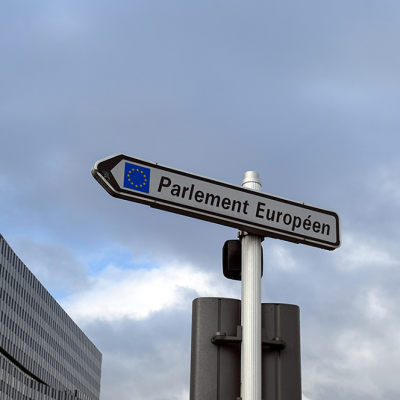[FR] The intellectual debate on Europe in the United Kingdom
This text is the third in a series of studies published by Notre Europe. It aims to take a fresh look at the impact of the European integration process on the future of the nation state by examining the intellectual debate in the Member States of the European Union.

FOREWORD
This text is the third in a series of studies published by the Study and Research Group ‘Notre Europe’ chaired by Jacques Delors. Its aim is to take a fresh look at the impact of the European integration process on the future of the nation state by examining the intellectual debate in the Member States of the European Union.
The first two studies were published in a collective work on Franco-German relations: ‘The Nation and Europe: The German Debate’ by Dr Donate Kluxen-Pyta of the University of Bonn and “The New Crisis of European Consciousness: Political Europe between Nation and Federation. A French Perspective” by Laurent Bouvet, Doctor of Political Science and researcher at the School for Advanced Studies in the Social Sciences and the University of Siena 1.
Interestingly, this third study differs from those on France and Germany in several respects, in terms of style but NOT in terms of quality. Firstly, the very notion of an ‘intellectual’ debate is at odds with the traditional British pragmatic approach to European affairs. Stephen George, Jean Monnet Professor in the Department of Politics at the University of Sheffield, points out that the United Kingdom does not have a distinct intellectual class. The debate can therefore seem somewhat parochial and trivial.
Secondly, despite the recent proliferation of think tanks on both the right and the left, which are making an increasingly important contribution to the political debate on Europe, this relatively small circle of intellectual opinion has little impact on the public. Another striking feature of the debate in the United Kingdom today is that it tends to focus on the issue of economic and monetary union, although the arguments put forward by the right and the left reflect more general attitudes towards the EU.
Nevertheless, Professor George concludes on an optimistic note, highlighting original thinking on other issues, such as democratic legitimacy, particularly from the pro-European left, which he hopes will make a positive contribution to the European debate and encourage the UK to embrace a European future. We hope that ‘The Intellectual Debate on Europe’ will complement our April publication of Lionel Barber’s study ‘The UK in Tomorrow’s Europe’ (updated translation into French and German of the English text by the Centre for European Reform in London) and lead to a better understanding of the debate in the UK.
Our long-term ambition is to publish further studies of this kind for each Member State in order to provide an overview of the intellectual debate on the future of European integration across the Union.




